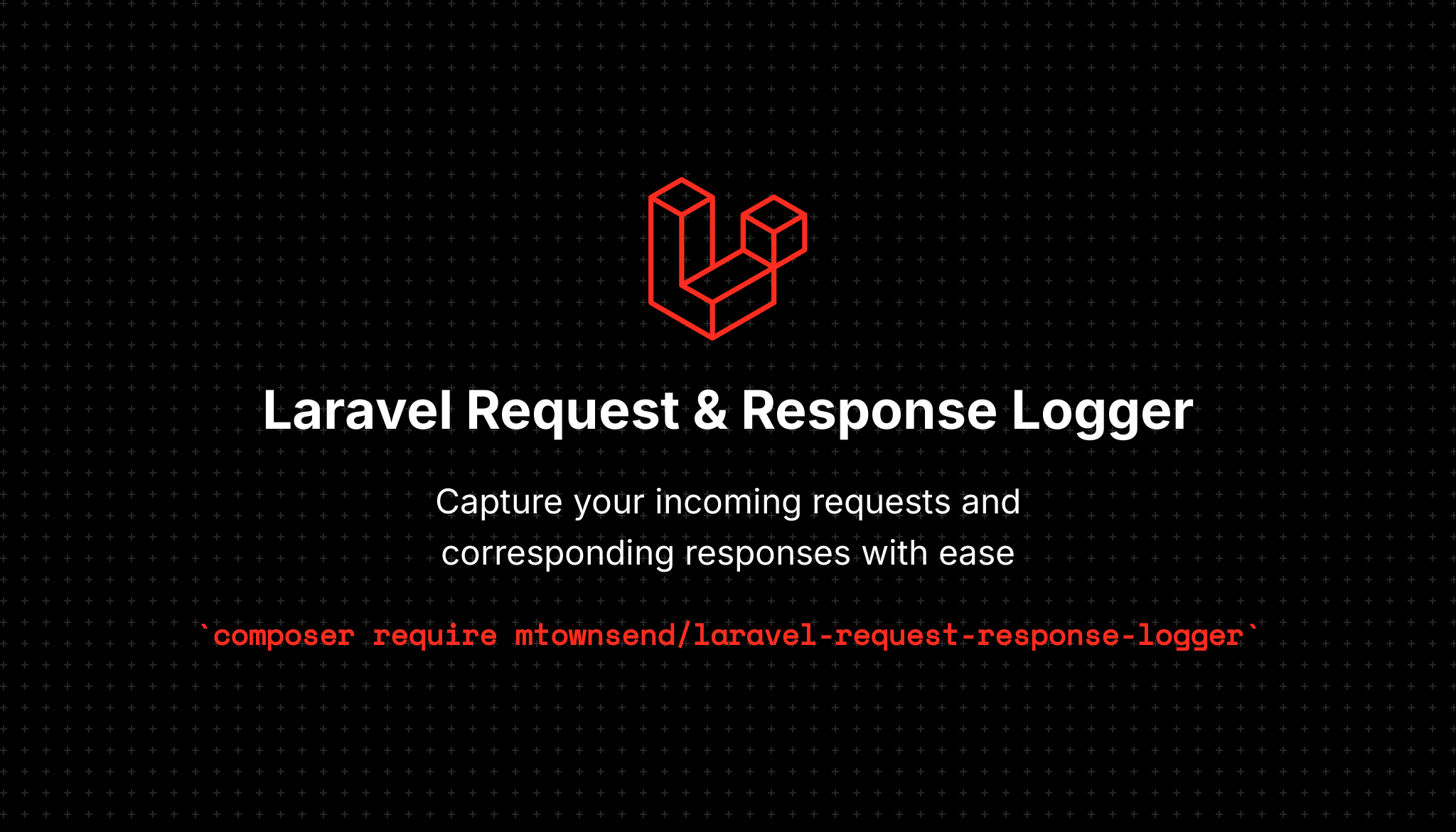Download the PHP package mtownsend/laravel-request-response-logger without Composer
On this page you can find all versions of the php package mtownsend/laravel-request-response-logger. It is possible to download/install these versions without Composer. Possible dependencies are resolved automatically.
Informations about the package laravel-request-response-logger

Easily capture every incoming request and the corresponding outgoing response in your Laravel app.
This package is designed to work only with the Laravel framework.
Installation
Install via composer:
Upgrading from v1.0.X -> v2.0.X
Please see the release notes here.
Registering the service provider (Laravel users)
For Laravel 5.4 and lower, add the following line to your config/app.php:
For Laravel 5.5 and greater, the package will auto register the provider for you.
Publish the migration and config files
You will need to publish the migration and configuration file before you can begin using the package. To do so run the following in your console:
`
Next, you need to run the migration for the new database table. Run the following in your console:
`
Setting up the middleware (important!)
In order to begin logging requests and responses you will have to attach the middleware to the routes you want to log. The package does not make this assumption for you, since not everyone may want to log every route.
Now, navigate to your /app/Http/Kernel.php
You can choose which method you would like to use. We've provided a few different options below:
OPTION 1: Bind the middleware to a name you can call only on the routes you want
Then apply the named middleware to whatever routes you want:
OPTION 2: Assign the middleware to a route group
OPTION 3: Assign the middleware to every route
That's it! The middleware will log every incoming request it receives!
Customizing your configuration (optional)
This package provides a few customizations you can make.
When you navigation to app/config you will see a log-requests-and-responses.php file. It will contain the following:
Housekeeping
You may want to utilize some housekeeping to prevent your logs table from getting too large. This package supplies a preregistered command for wiping the table clean. You may run it manually
`
You may also schedule it to be run automatically in app/Console/Kernel.php:
Advanced Usage
Conditional logging
This package provides support for specifying custom conditions before a request/response is logged to the database.
It comes with 3 default options out of the box:
- LogAll - log request & response
- LogClientErrorsOnly - log only responses that have an http status code of 4XX
- LogSuccessOnly - log only responses that have an http status code of 2XX
- ...or your own!
Creating your own conditional logic is pretty straightforward and can be done in 2 simple steps:
-
First, create a custom class that will perform your conditional checks for logging. For demonstration purposes let's say we're going to create a conditional logic check to only log requests made from external services and not your own web app. You can use the following code as a template.
- Open up your
config/log-requests-and-responses.phpand set theshould_log_handlerkey to your class.
...and that's it! Your custom logging logic will now be used any time the middleware is executed.
Model scopes
If you would like to work with the data you've logged, you may want to retrieve data based on the http code your app returned for that request.
Replacing the RequestResponseLog model with your own
You may want to extend the base RequestResponseLog model with your own. This is entirely possible.
First, create your own model
`
Then in your model, extend the base model:
Then in your app/config/log-requests-and-responses.php:
Now the package will utilize your model instead of the default one.
Testing
You can run the tests with:
License
The MIT License (MIT). Please see License File for more information.


